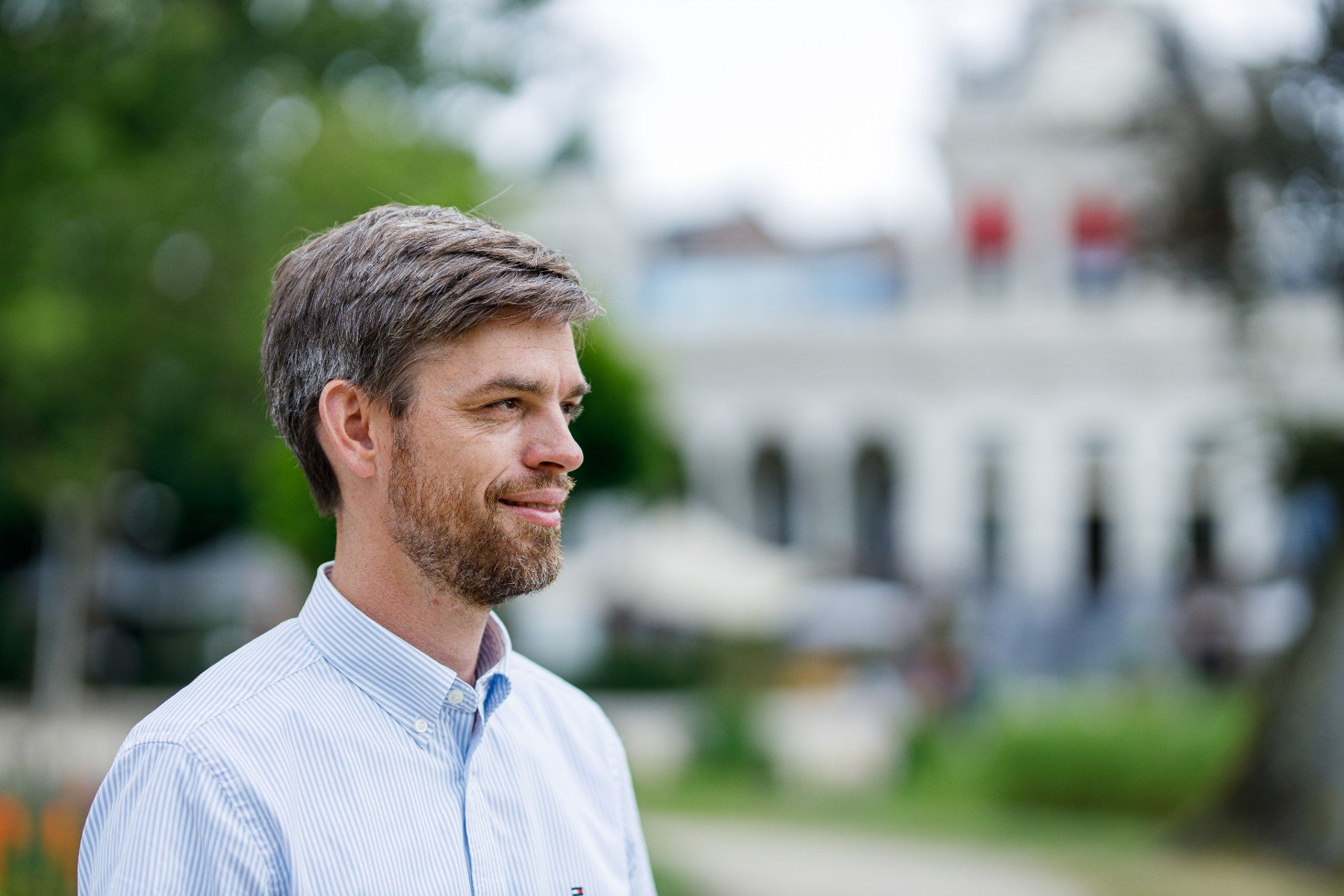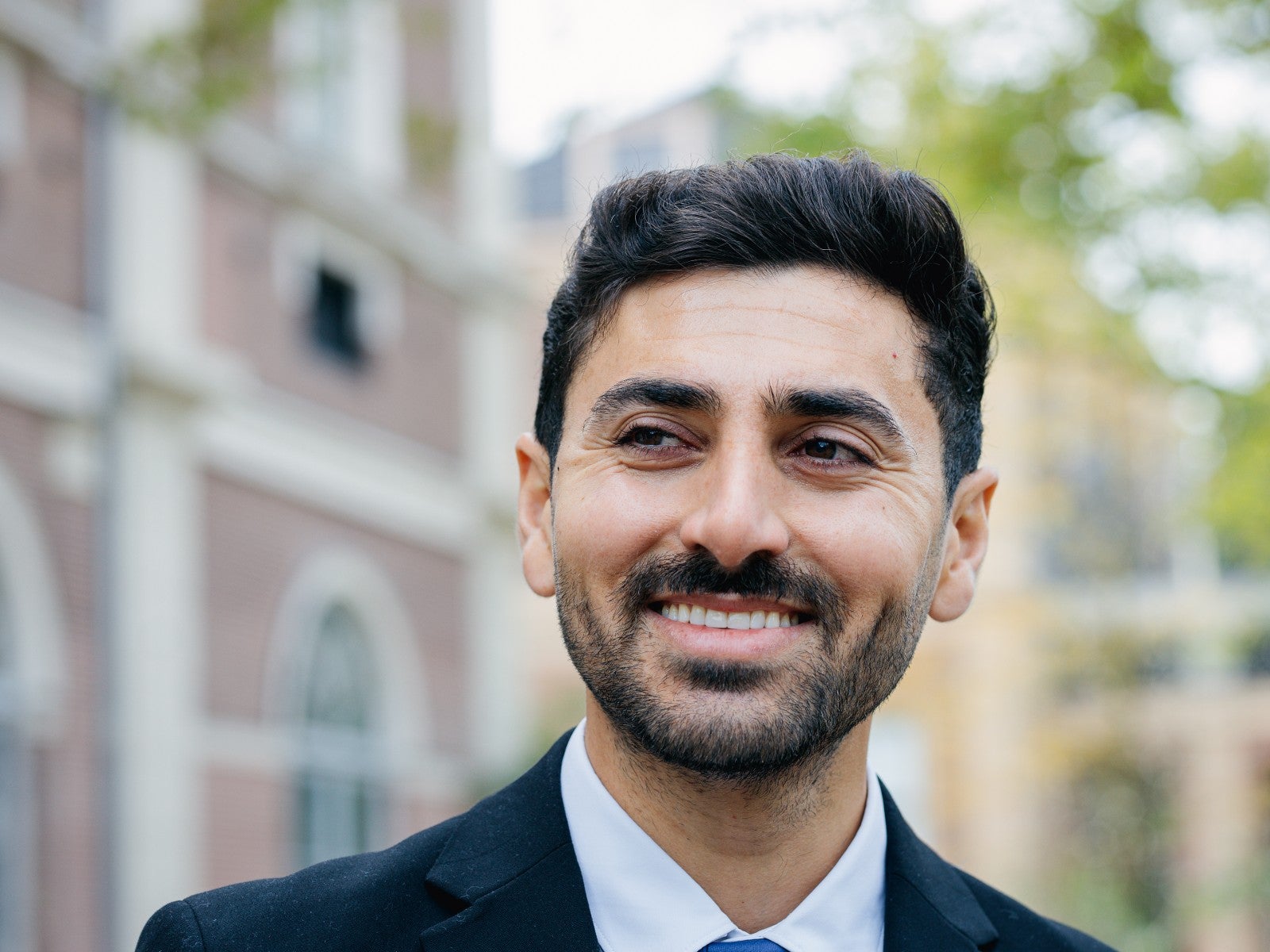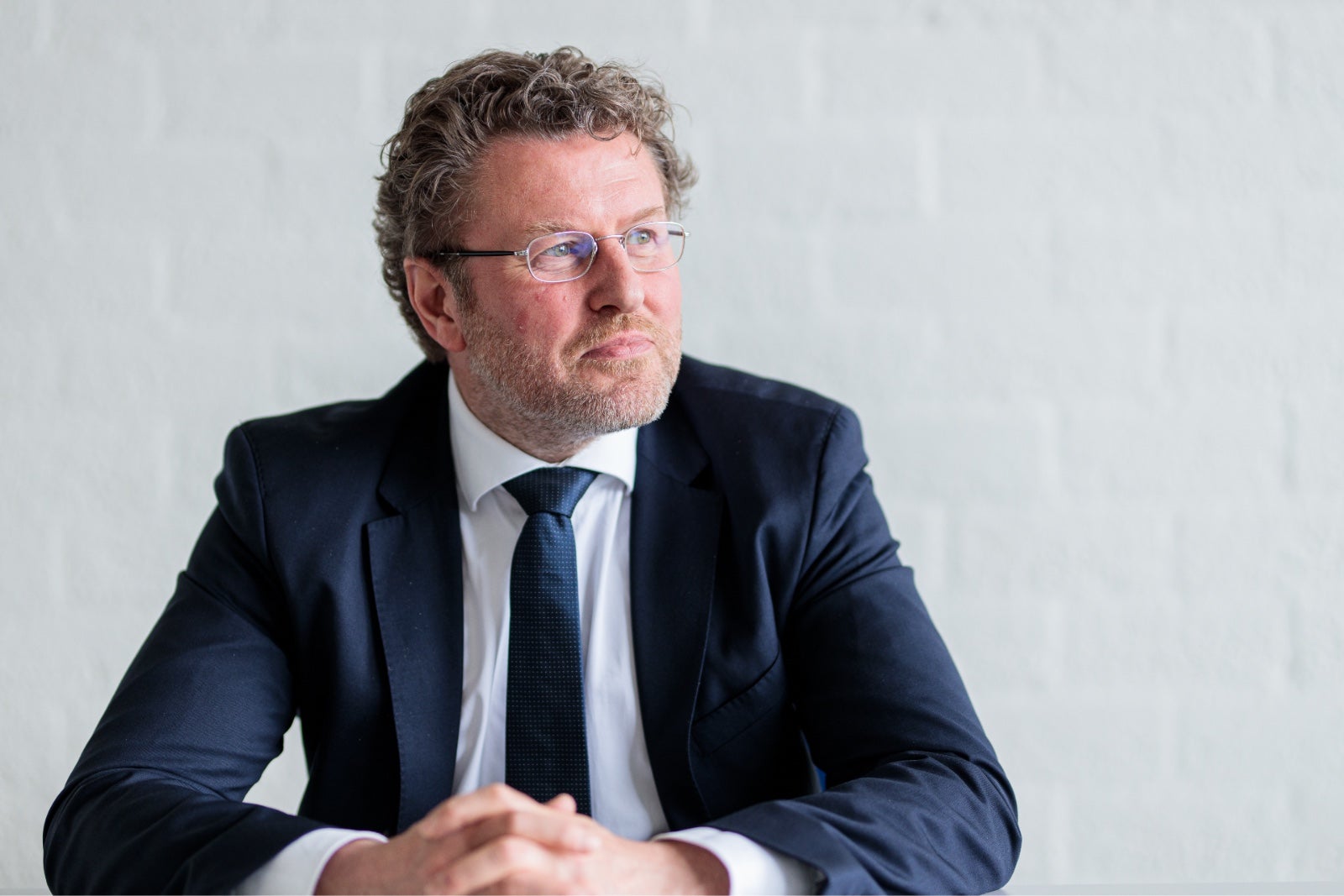David van der Meulen (37), a VU alumnus, isn’t your typical pastor. He doesn't align with just one church, but predominantly connects with the youth, and interestingly, many of these millennials don’t identify with any religion.
Before we met, Van der Meulen specifically requested not to have his photograph taken in a traditional pastoral setting, like in front of a church. „Such imagery can be off-putting for the twenty and thirty-somethings I aim to connect with," he explained.
Our interview venue? A bustling café in Amsterdam’s Oud-Zuid, where young individuals engrossed in their laptops surround us. When asked if this is his intended audience, David looked around and remarked, „Mostly, yes. The people I observe here are in their twenties or thirties. They’re educated, most likely have comfortable homes, active social lives, gym memberships, and often go on vacations. They're much like me, so I can resonate with their challenges." With a chuckle, he added, „I'm hustling through this week myself, hoping for a weekend escape."
What kind of discussions do you have with these individuals?
„Many of the people who approach me grapple with existential questions, such as: 'Who am I exactly?', 'What should I do with my life?', or 'Why do I feel so lonely?' These questions can be even more challenging for them because, from an external perspective, they seem to have everything in life. I also assist them with practical matters like career decisions or the search for a romantic partner."
„I hold a deep affection for these people, akin to an unconditional love, much like how God does."
Your role seems akin to that of a coach. How do you differentiate yourself from an average coach?
„For me, the foundation of my work lies in building meaningful relationships with these individuals. The connection we share is paramount. I hold a deep affection for people, akin to an unconditional love, much like how God does. This approach might differ from the more transactional nature of paying for sessions with a psychologist or coach. Additionally, as a pastor, I incorporate the richness of the Christian tradition, helping young people explore their lives from a new perspective."
What inspired you to adopt this modern approach to being a pastor?
„Ironically, I initially had no desire to become a pastor. In my childhood, I observed my father, who also studied theology at the VU and, like my grandfather, was a pastor. As a child it felt like my father coming home each week with stories of individuals facing terminal illness or tragic accidents. The weight of the world's suffering on one's shoulders didn't appeal to me."

„However, after completing my theology studies at the VU and spending three years working as a pastor in a disadvantaged neighborhood in Amsterdam New West, my perspective shifted. I returned to the VU to explore how faith related to the lives of young people, and how the church should learn from this."
„Around that time, I and my wife settled in Amsterdam Oud-Zuid, and I felt a calling to pioneer in that community. My goal is to bridge the gap between the church and young people without expecting them to attend Sunday services or unquestioningly embrace the Bible. I recently authored a book called 'Welcome to the Outer Courts' and established LoZ Millennials (Light on Meaning), an organization that hosts 'Masterclass.nl' addressing topics of concern to urban youth. People often discover me through Instagram or word of mouth for one-on-one conversations."
What role does faith play in these conversations?
„I refrain from initiating discussions about faith. While I hold strong faith myself, I believe that individuals will inquire about it if they're genuinely interested. In many one-on-one conversations, faith rarely comes up spontaneously. Sometimes, people question why God hasn't come to their aid, or they use terms like "the universe" instead. My aim is not to impose faith but to create a non-coercive environment, a safe space. In fact, pushing faith can be counterproductive."
„I don't seek to convert them, get them to attend church services, or solicit funds."
You differ from traditional pastors in that you're not affiliated with a specific church and don't operate within a physical church. What advantages does this independent position bring?
„My independence plays a pivotal role in gaining the trust of young people. I don't seek to convert them, get them to attend church services, or solicit funds. This makes me a 'genuine' pastor in their eyes. It's a necessity because roughly two-thirds of the people I interact with harbor suspicions as soon as they hear the term 'church' or have no interest in matters of faith. I have no hidden agenda; my satisfaction comes from sparking their curiosity, provoking thought, and offering a listening ear."
„Jesus Christ has been a profoundly significant aspect of my life. When I express this, some people react as if they've witnessed something extraordinary."
„The fact that I'm not directly employed by a church but work on its behalf helps immensely. One-third of the budget comes from the church, while I also raise funds through crowdfunding and grants. I have a modest income model through the master classes, with one-on-one conversations remaining free. Over time, I may suggest the possibility of voluntary donations to our organization."
But, if you believe in a merciful God, wouldn't you extend that mercy to others? Does your pastoral role ever conflict with your personal convictions?
„I've had to adjust my expectations over time. Initially, I believed that there would be people interested in connecting with me for matters of faith, but they constitute a mere one percent of those I encounter. My primary aim is to make a positive impact on each person's life and respect their beliefs rather than trying to convert them to my viewpoint. Drawing from the unconditional love of God, I've witnessed numerous young people take bold steps in their relationships, careers, and self-image. Nevertheless, it's a unique reality I find myself in; Jesus Christ has been a profoundly significant aspect of my life. When I express this, some people react as if they've witnessed something extraordinary."








